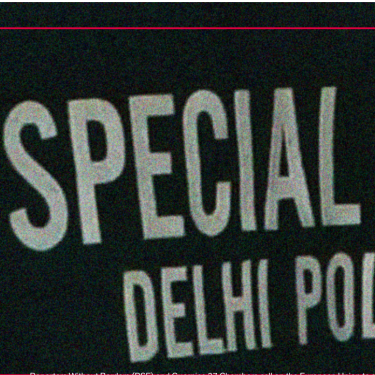NewsClick case in India: RSF and Guernica 37 Chambers call on the US to sanction Delhi police officers

Following a call to the European Union in March, Reporters Without Borders (RSF) and Guernica 37 Chambers call on the United States to sanction four high-ranking officers of the Delhi police, responsible for serious violations of the rights of some forty journalists who work or have worked with the independent media outlet NewsClick.
On the eve of the results of the general elections, which are due to be announced on 4 June, RSF and lawyers from Guernica 37 Chambers, a group that specializes in human rights and international criminal law, made recommendations to the US Department of State and Department of Treasury to adopt targeted sanctions against four officials of the Delhi police's Special Cell implicated in an unprecedented crackdown on journalists in India. This counter-terrorism cell is under the direct control of the Home Ministry headed by Amit Shah, and is regularly used to intimidate voices critical of the government.
In October 2023, members of the Special Cell raided the homes of 46 journalists, contributors and current or former employees of NewsClick, an independent media outlet founded in 2009. More than 480 electronic devices were seized. NewsClick founder Prabir Purkayastha was arrested and charged under the draconian UAPA (Unlawful Activities Prevention Act) anti-terrorism law, and detained in Delhi's Tihar Prison for 179 days without charge. He was released on bail on 15 May following an order by the Supreme Court, which ruled that his detention by the police was illegal. NewsClick Human Resources Director Amit Chakravarty was also detained and released on 6 May.
None of the police officers involved were held to account, encouraging similar future abuses with impunity. This is why RSF is calling for sanctions by the United States under the Global Magnitsky Act.
"The actions of the Delhi Police Special Cell against NewsClick journalists represent one of the most blatant attacks on press freedom in India. In March, RSF and Guernica 37 Chambers called on European Union member states to sanction these police officers. We are now calling on the US, where President Biden recently pledged to take action against those responsible for obstructing press freedom. Urgent action by the United States in this case would send a strong signal to the entire international community and a warning to the Indian authorities that the repression of journalists must stop.
Accused by the Special Cell of receiving illegal Chinese funding without substantiating these claims, the NewsClick editorial team is in reality mainly targeted for its investigative reporting. Several journalists swept up by the raids had investigated alleged fraud committed by the Adani conglomerate, whose chairman is allegedly close to current Prime Minister Narendra Modi. Other reporters appear to have been targeted for their coverage of farmers' protests and of the protests against the Citizenship Amendment Act (CAA) between 2020 and 2021, both of which are sensitive political issues.
"The Delhi Police’s Special Cell seems to be one of the go-to bodies for the Indian government to target critics, including journalists.The UAPA makes it easy for authorities to arrest and detain critical voices. Both the UN and multiple foreign governments have warned the UAPA is ripe for misuse by authorities.
In March 2024, RSF and Guernica 37 submitted a similar request to the European External Action Service (EEAS). Sanctions imposed by the US would complement the range of measures that could be taken by EU member states. Those subject to US Global Magnitsky sanctions have their assets and interests in assets under US jurisdiction blocked, and US nationals are generally prohibited from carrying out transactions with them. In addition, they are generally prohibited from entering or transiting US territory. The global dominance of the US dollar and the United States' full sovereignty over its use enhance the effectiveness and deterrent power of sanctions imposed under the Magnitsky mechanism compared to those imposed by other countries.
